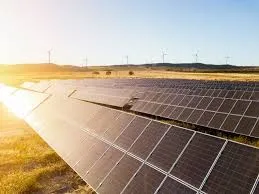solar panel inverter
Understanding Solar Panel Inverters A Key Component of Solar Energy Systems
In the quest for sustainable energy solutions, solar power has emerged as a leading alternative, and at the heart of every solar energy system lies the inverter. The solar panel inverter plays a crucial role in converting the direct current (DC) generated by solar panels into alternating current (AC), which is the type of electricity commonly used in homes and businesses. This process is essential for making solar energy usable in everyday electrical applications.
There are several types of solar inverters available in the market, each with its own unique features and advantages. The three primary types are string inverters, microinverters, and power optimizers. String inverters are the most common type and are typically used in residential solar installations. They work by connecting multiple solar panels in a series or “string,” converting the DC energy produced by the entire string into AC. While they are cost-effective, their performance can be affected if one panel is shaded or experiences reduced efficiency.
Microinverters, on the other hand, are attached to each individual solar panel. This allows for independent operation, meaning that if one panel performs poorly due to shading or other issues, it does not impact the overall system's efficiency. This technology can enhance energy production and optimize performance, especially in installations where panels are not uniformly positioned.
solar panel inverter

Power optimizers serve as a hybrid solution. They are installed at the panel level and work to condition the DC electricity before sending it to a central inverter. This enhances energy harvest while allowing the benefits of a traditional string inverter. Power optimizers help mitigate issues related to shading and panel mismatch, making them a popular choice for many solar users.
Selecting the right inverter is crucial for maximizing the efficiency of a solar energy system. Factors to consider include the size of the installation, shading conditions, and future energy needs. Moreover, advancements in inverter technology, such as smart inverters with grid support capabilities, are becoming increasingly important as more homes and businesses turn to renewable energy sources.
In conclusion, solar panel inverters are essential components that enable solar energy systems to function efficiently. By converting DC electricity to AC, these devices not only facilitate the use of solar power in everyday life but also contribute to the broader goal of reducing our reliance on fossil fuels and promoting sustainable energy practices. As technology continues to evolve, the role of inverters will undoubtedly become even more pivotal in the renewable energy landscape.
-
Unlocking Energy Freedom with the Off Grid Solar InverterNewsJun.06,2025
-
Unlock More Solar Power with a High-Efficiency Bifacial Solar PanelNewsJun.06,2025
-
Power Your Future with High-Efficiency Monocrystalline Solar PanelsNewsJun.06,2025
-
Next-Gen Solar Power Starts with Micro Solar InvertersNewsJun.06,2025
-
Harnessing Peak Efficiency with the On Grid Solar InverterNewsJun.06,2025
-
Discover Unmatched Efficiency with the Latest String Solar InverterNewsJun.06,2025







